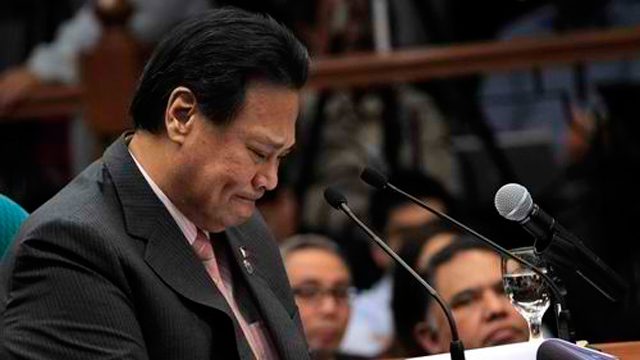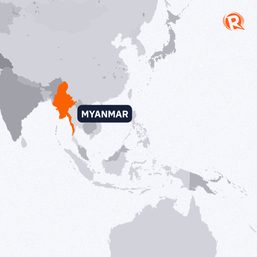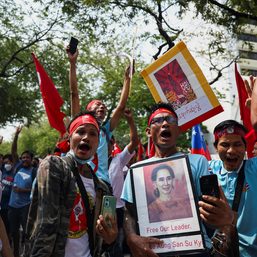SUMMARY
This is AI generated summarization, which may have errors. For context, always refer to the full article.

MANILA, Philippines – Anti-graft court Sandiganbayan gave the Office of the Ombudsman the green light to proceed with its inquiry into the bank accounts of the late Chief Justice Renato Corona in an ongoing forfeiture case against his assets.
The Sandiganbayan 2nd Division reversed its earlier ruling which granted the omnibus motion of Corona’s wife, Cristina, to quash the subpoenas that the Ombudsman had requested for bank records and witnesses.
This is in relation to the Ombudsman’s bid to forfeit P131 million worth of Corona’s assets. The case was filed by the Ombudsman in 2014 or two years after Corona was ousted as chief justice for non-declaration of his foreign currency deposits.
In a resolution promulgated on October 23, the Sandiganbayan 2nd Division ruled that the Ombudsman is authorized to seek and issue subpoenas.
Subpoenas, both for the documents and bank officials, were issued by the Sandiganbayan in January 2016. Cristina Corona challenged this in February the same year. (READ: Corona’s widow asks SC to dismiss forfeiture case)
In April 2016, the anti-graft court sided with Mrs Corona and said that it could not be forced into participating in the Ombudsman’s case buildup. The court also said it was necessary to “maintain an attitude of impartiality.”
The Sandiganbayan quashed the subpoenas and rendered all evidence and testimonies inadmissible. The subpoenas were for documents and officials from Allied Banking Corporation, Land Bank of the Philippines, and PSBank.
“The Court does not discount the danger that the subpoenaed bank officials may be misled into believing that the Court has countenanced or tolerated any possible infraction of the policy on secrecy of bank deposits,” the 2nd Division said then.
But in its latest ruling, the court set aside its earlier decision.
New ruling
The Sandiganbayan pointed out that Republic Act (RA) No. 6770 or the Ombudsman Act grants the office’s investigators the authority to issue subpoenas.
The court also said there is no infraction of bank secrecy. “Bank deposits can be inquired into upon order of this Court if said deposits are the subject of litigation, like in this case,” the 2nd Division said.
The Sandiganbayan added that although RA No. 6426 states there should be a secrecy of foreign currency deposits, Section 8 of the same law provides exemptions which include “process of any court, legislative body, government agency or any administrative body whatsoever.”
The Sandiganbayan also said that the bank secrecy law allows an investigation into bank accounts “in cases of impeachment or upon order of a competent court in cases of bribery or dereliction of duty of public officials, or in cases where the money deposited or invested is the subject matter of litigation.”
Finally, the court quoted Section 15(8) of the Ombudsman Act which states that the Office of the Ombudsman is authorized to “administer oaths, issue subpoena and subpoena duces tecum, and take testimony in any investigation or inquiry, including the power to examine and have access to bank accounts and records.” (You can read more about what a subpoena duces tecum is here.)
The resolution was penned by Associate Justice Oscar Herrera with concurrences from Associate Justices Michael Frederick Musngi and Lorifel Pahimna. – Rappler.com
Add a comment
How does this make you feel?





There are no comments yet. Add your comment to start the conversation.